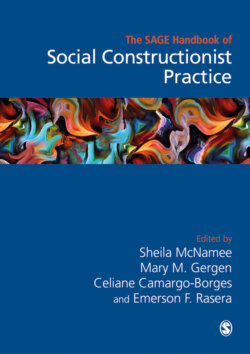Читать книгу The Sage Handbook of Social Constructionist Practice - Группа авторов - Страница 157
На сайте Литреса книга снята с продажи.
Adopting a Critical Stance
ОглавлениеSocial work encourages criticality primarily from its value and political positions. Its criticality does not often extend to epistemological issues. For instance, it is more common to find publications that critique social policies for their consequences for marginalized groups, than to question the epistemological bases for various beliefs. This does not negate the importance of social work's critical stance; however, it does limit its ability to respond to issues in innovative and potentially transformative ways (Witkin, 2017).
In contrast, social construction's criticality is primarily epistemological and less overtly value-based and political. For social constructionists, following Foucault, questioning what is assumed or taken-for-granted has the potential to reveal operative discourses and how they generate what is taken to be real or mask power relations, making it difficult to generate alternatives. Social construction's problematizing stance can make visible what is assumed and seemingly natural thereby making it available for examination.
